The best PS5 internal SSDs
The best PS5 internal SSDs expand storage space, and are a snap to install
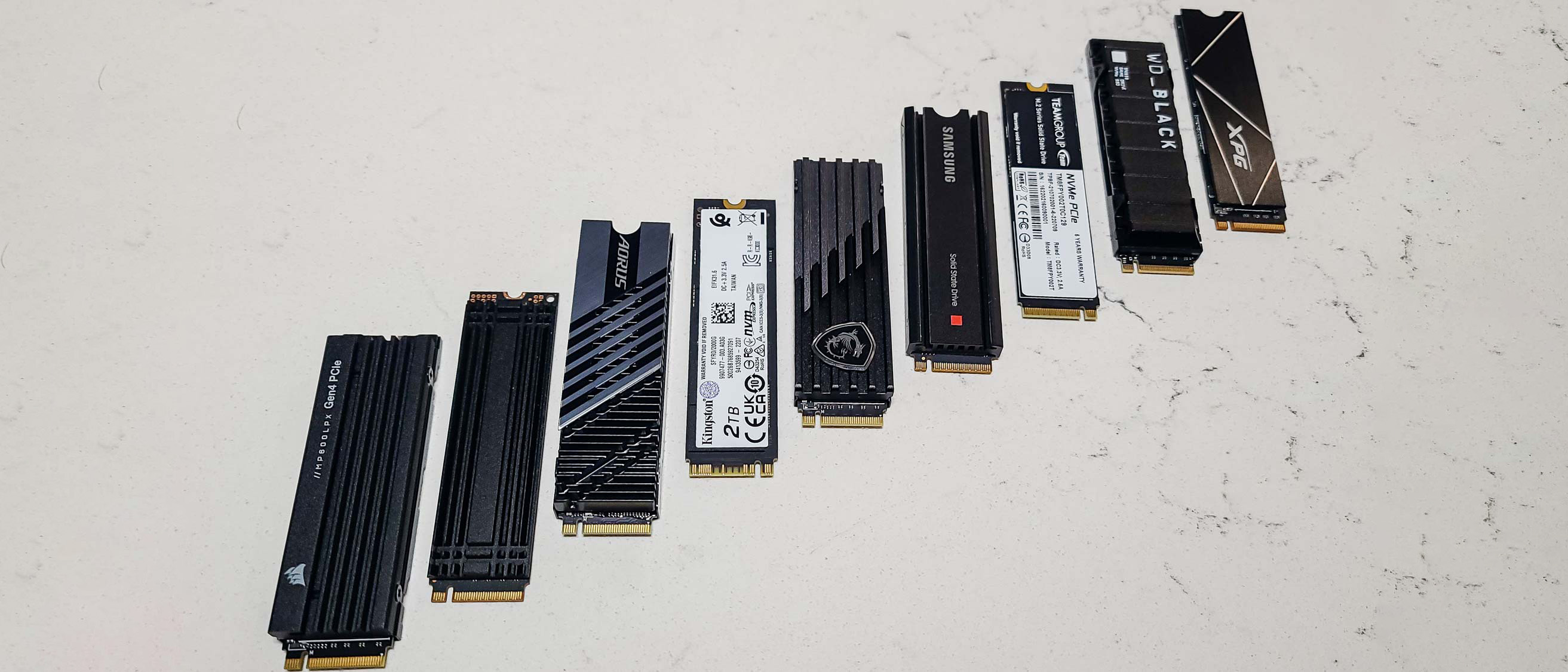
The best PS5 internal SSDs let you expand the amount of storage space on your Sony console all without having to sacrifice speed when booting up your favorite games. And considering the PS5 comes with a relatively paltry amount of storage out of the box, you just might find that a larger internal SSD is an essential extra.
Of course, External hard drives and SSDs are also available for increasing the PS5’s base 825GB of storage (increased to 1TB on the PS5 Slim model), and making it possible to hold even more games. However, an internal SSD offers a permanent storage increase with very little fuss. Simply screw it in, and you can forget it’s there.
Small, convenient, and easy to install, PS5 SSDs are one of the best and quickest ways to avoid running out of space — at least until the games start getting even bigger than they already are, which feels rather inevitable now that 100GB+ games have become the norm. But for now, installing an SSD is a killer upgrade that will make both playing and managing your games a lot faster and more fun.
What are the best PS5 internal SSDs?
Why you can trust Tom's Guide
While evaluating PS5 SSDs to see which one was the best, we discovered bad news (well, sort of) and good news. The bad news is that there are a ton of drives on the market, and they’re all virtually identical in form factor (M.2), shape (rectangular), and function (see above). It can be unusually difficult to know which to buy.
The good news is: For the most part, it doesn’t matter.
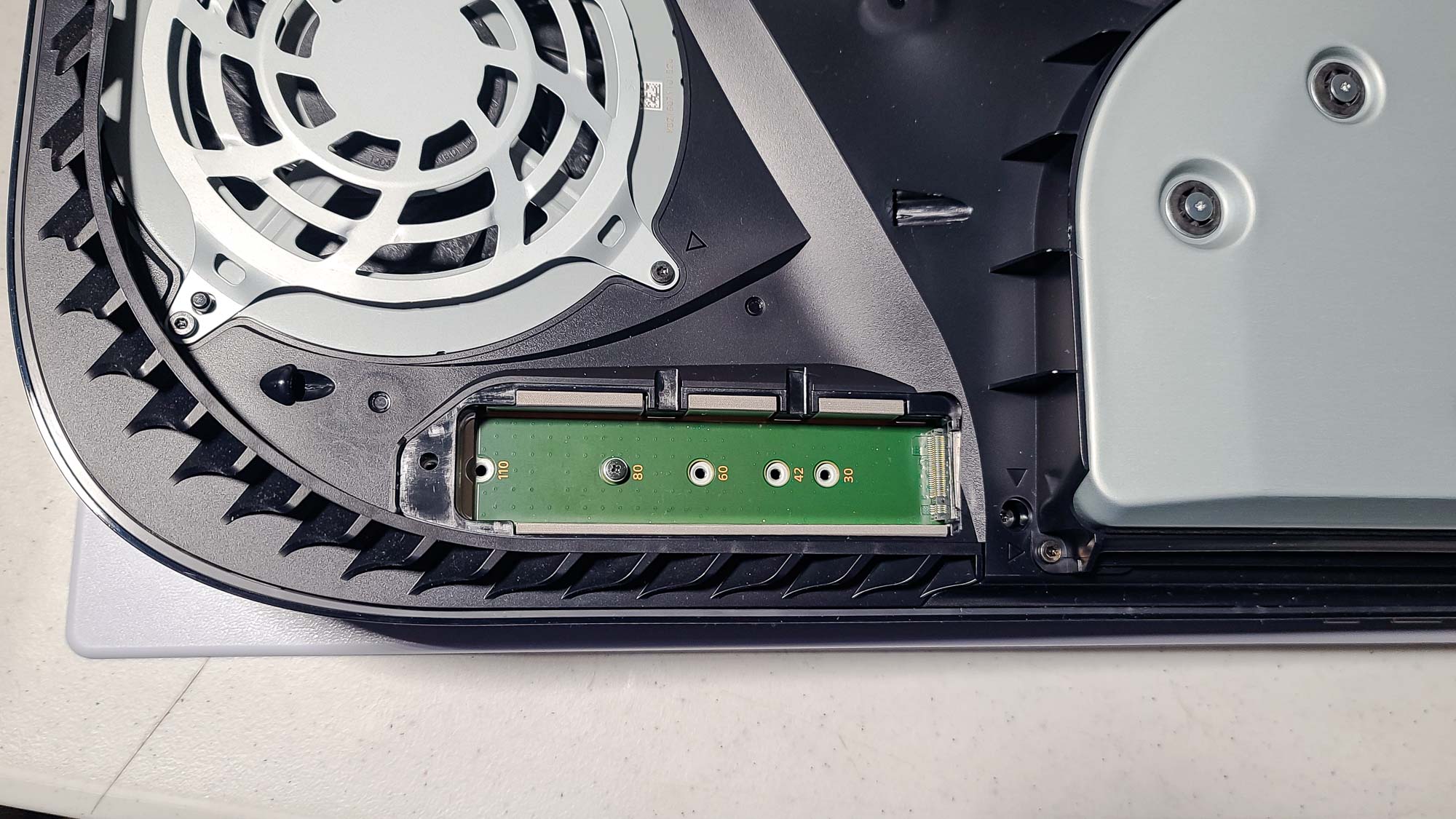
Each one we looked at was an NVMe drive using the same M.2 2280 form factor, so you don’t have to worry about the SSD fitting in your PS5. Each one also supported the PCI Express (PCIe) 4.0 (aka Gen4) interface to help maximize every lick of speed. For that reason, most of these drives will also work in PCs with an M.2 slot, and that flexibility is good to have.
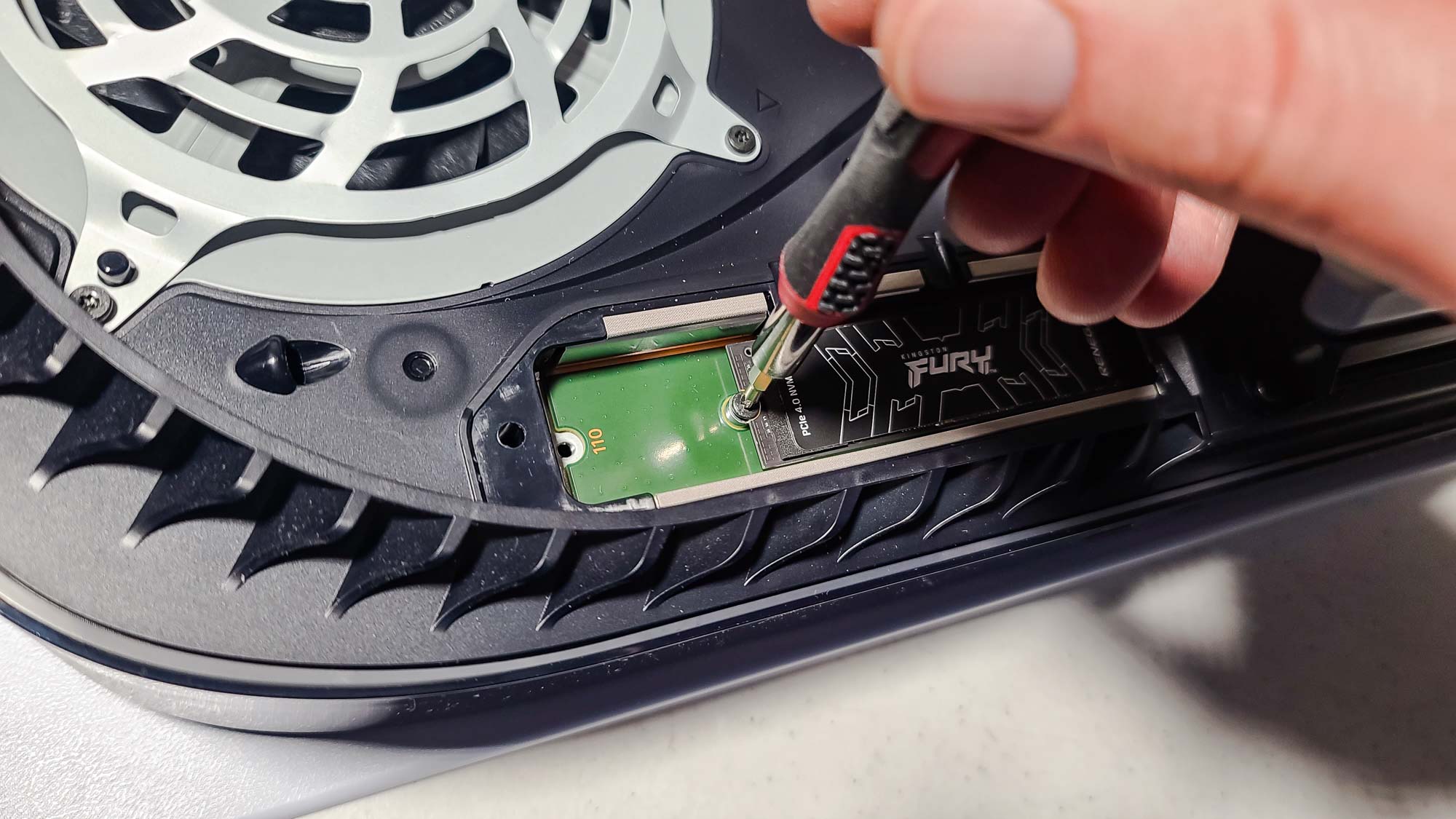
What matters more: All of the drives exhibited nearly identical performance in our tests. Yes, one drive might load one game a little faster than another, or just barely edge out another’s copy time on this game rather than that game. But the difference was usually only one or two seconds — and even the ultra-rare “runaway” winners never differed by more than three seconds.
Design is hardly a deciding factor here. Sure, some of the drives are quite attractive. But no matter how good they look, they’re going to be sealed in the windowless PS5 case. Instead, you can fall back on qualities such as capacity (with one exception, we tested only the 2TB model of each line, to keep the playing field as level as possible), price, convenience (which here basically means whether you have to apply the heat sink or dispersal strip yourself) and maybe even brand loyalty.
If you need an internal PS5 SSD, any of these drives will serve you well.
Corsair MP600 Pro LPX (2TB)
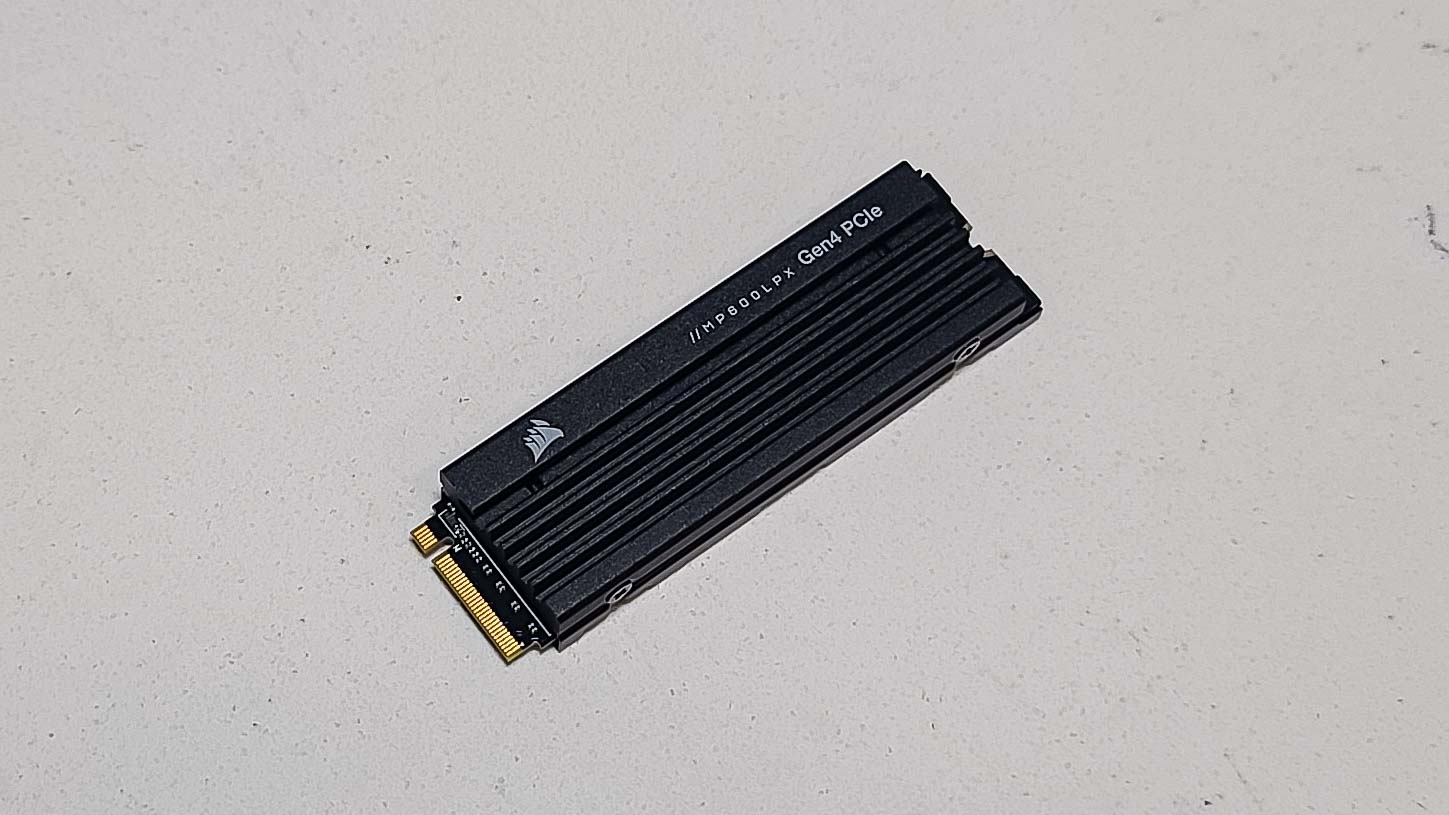
It makes sense that Corsair, an acknowledged leader in the PC component market, would have a PS5-ready SSD, too. And the MP600 Pro LPX is just as heavy-duty as Corsair’s computer hardware, with a stout-looking black aluminum heat spreader preinstalled. The MP600 comes in capacities ranging from 500GB to 4TB, and Corsair claims read speeds of up to 7,100MBps, although our PS5 reported only 5,561MBps. No matter — it plowed through our tests with ease, routinely keeping pace with the speediest drives, with its time of 50 seconds to load Assassin’s Creed Valhalla tied for the fastest we saw.
Crucial P5 Plus SSD (2TB)
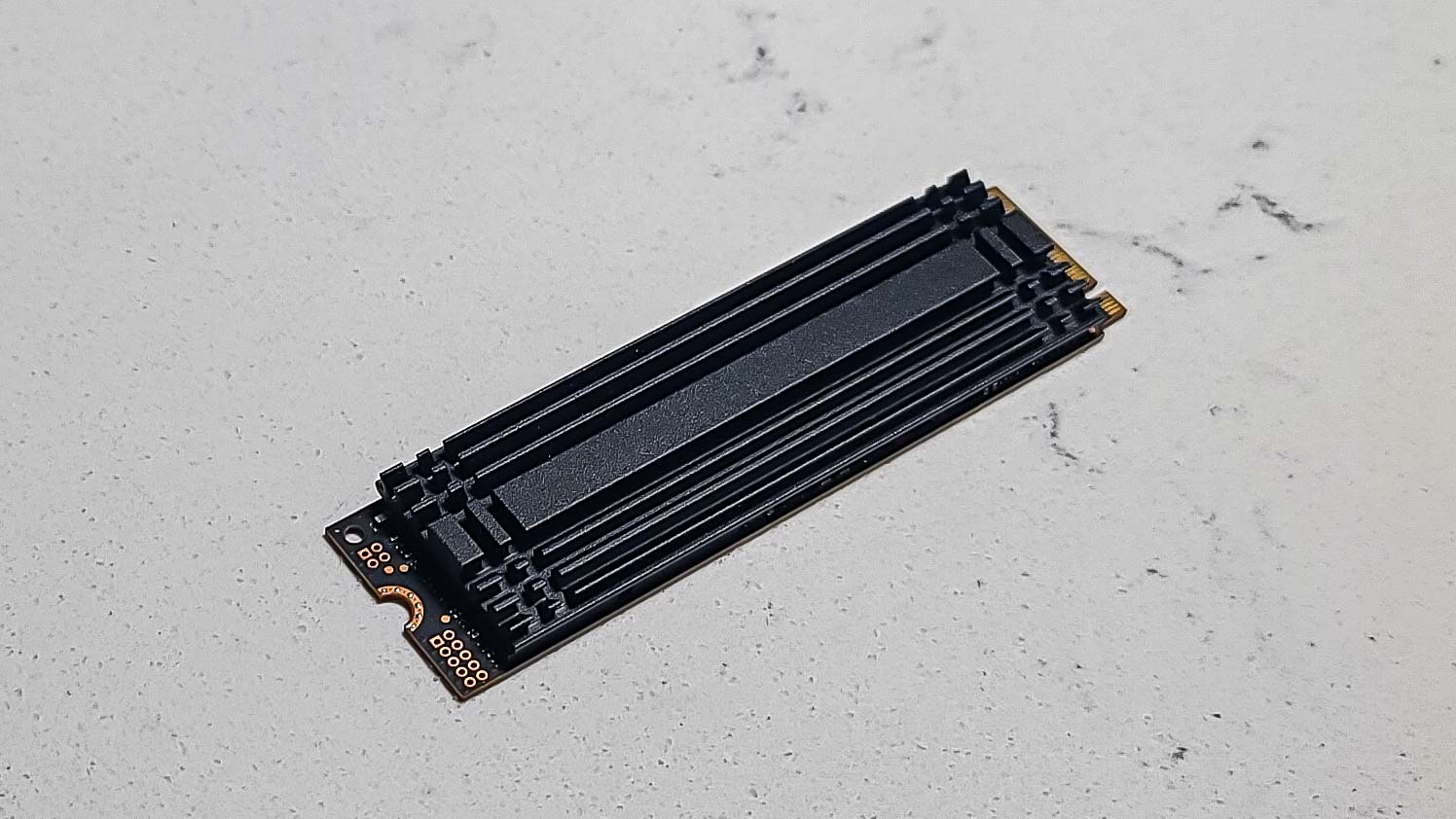
Crucial is no stranger to PC players, it's one of the biggest names in storage, and with the P5 Plus, the company is looking to earn that same reputation with console gamers. This drive is a fuss-free storage solution and was able to copy Assassin’s Creed Valhalla (needing 5 minutes, 12 seconds) and Mass Effect: Andromeda (3:22) back to the PS5 in good time, and it tied with two other drives for loading Assassin’s Creed Valhalla the fastest (50 seconds). Our PS5 reported its read speed as 5,640MBps, and Crucial claims sequential reads of up to 6,600MBps. The drawback is that you have to apply a heat-spreading strip yourself. The task is a simple one, but it adds scope for user error and prevents it from being truly plug-and-play. It comes in 500GB, 1TB and 2TB capacities.
Gigabyte Aorus Gen4 7000s SSD (1TB)
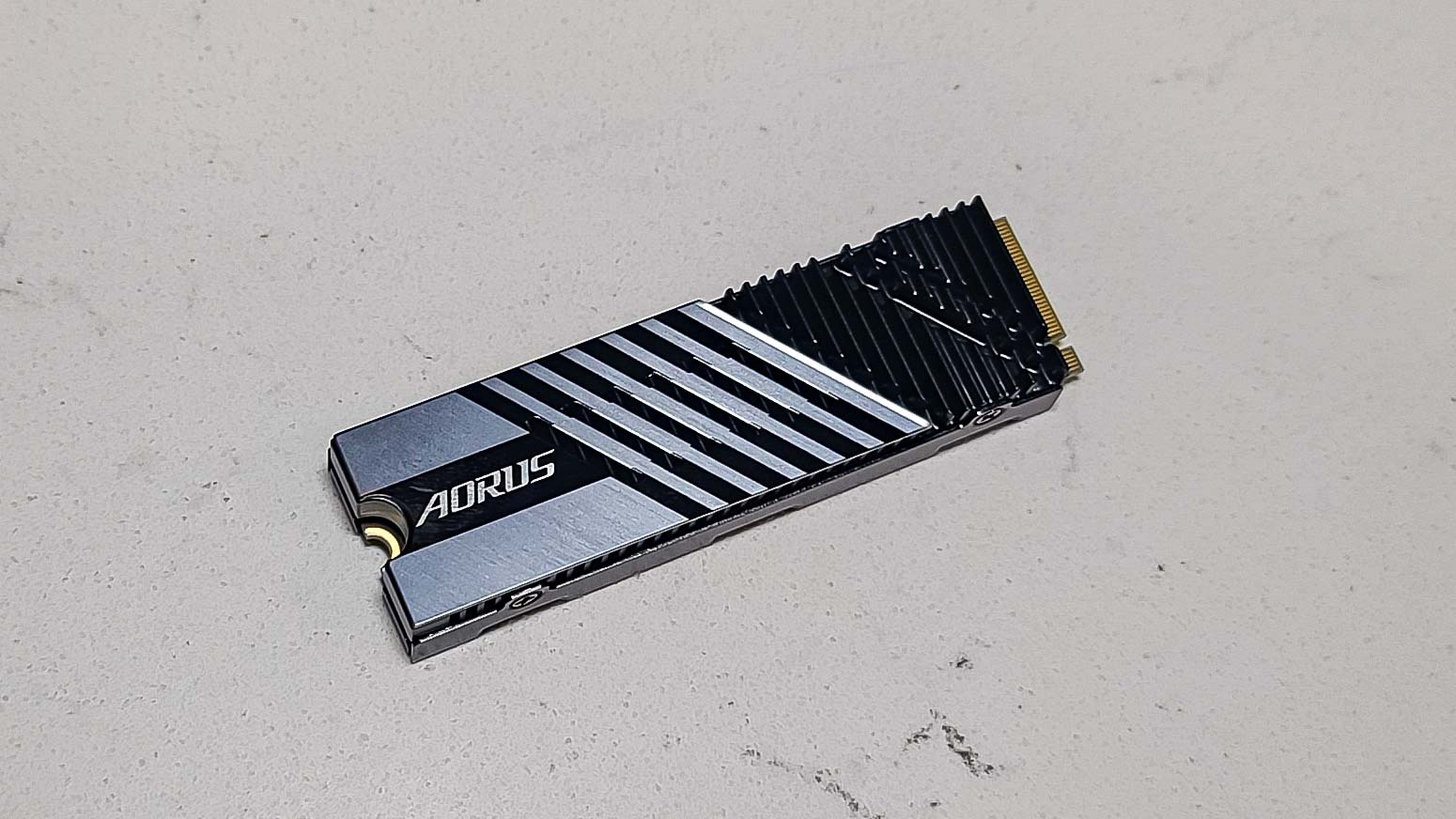
According to our PS5’s diagnostics, the Gigabyte Aorus Gen4 7000s SSD is the second-fastest drive we looked at, with a read speed of 6,538MBps — just below Gigabyte’s claim of 7,000MBps. Its biggest victory in our tests was its 50-second time for loading Assassin’s Creed Valhalla, but its solid results throughout keep it a respectable drive from a major “boutique” PC manufacturer. This striking-looking black-and-gray drive comes preloaded with a nanocarbon-coated 7mm heat spreader and a dual-sided conductivity pad for wicking away heat. (We were only able to acquire a 1TB model for our evaluation, but there’s also a 2TB version, which should work just as well.)
Kingston Fury Renegade (2TB)
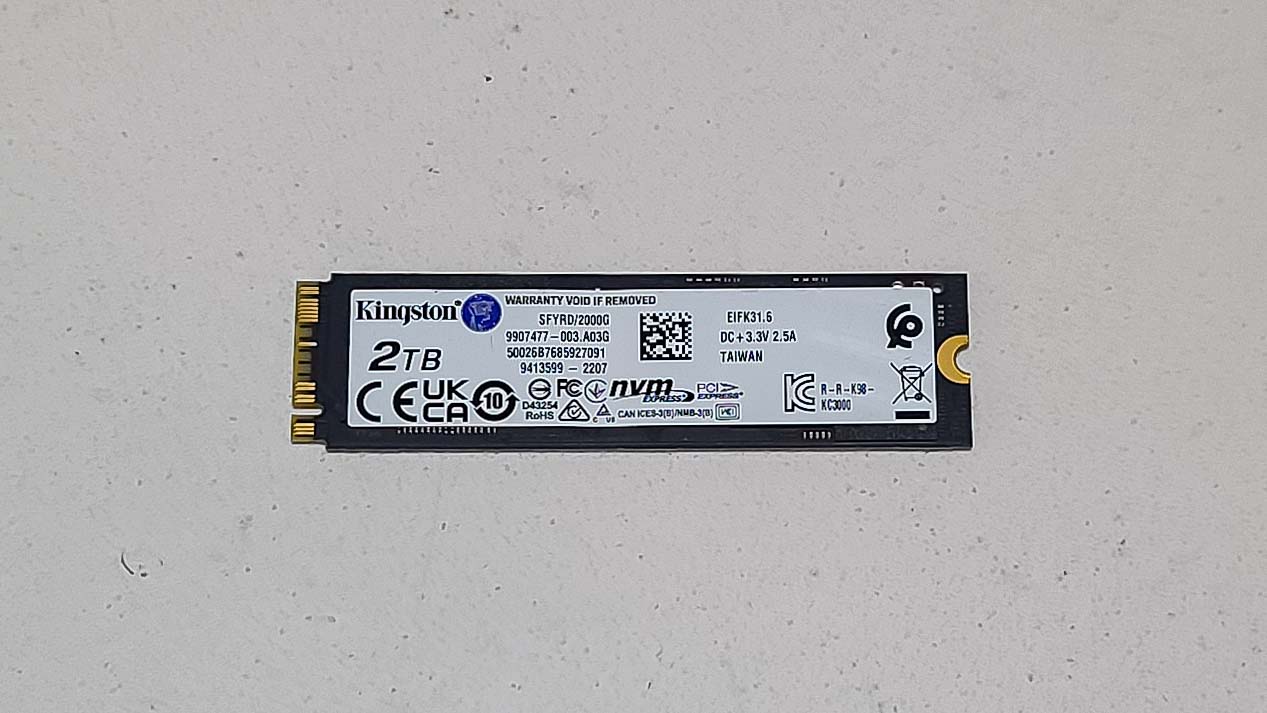
Like some of the other companies on this list, Kingston long ago made a name for itself in the PC storage and memory market. As such, the company's prowess in designing SSDs that also work in your PS5 was to be expected. Our console didn’t quite detect what the company touted as the Fury Renegade’s top read speed of 7,300MBps, but the 6,493MBps it did detect was the third-highest we saw. This drive distinguished itself with the fastest Assassin’s Creed Valhalla copy time (56 seconds). It also tied for fastest with Mass Effect: Andromeda (33 seconds), as well as its ultra-low-profile graphene heat-spreading strip. The Fury Renegade is available in capacities from 500GB to 4TB.
MSI Spatium M480 Play (2TB)
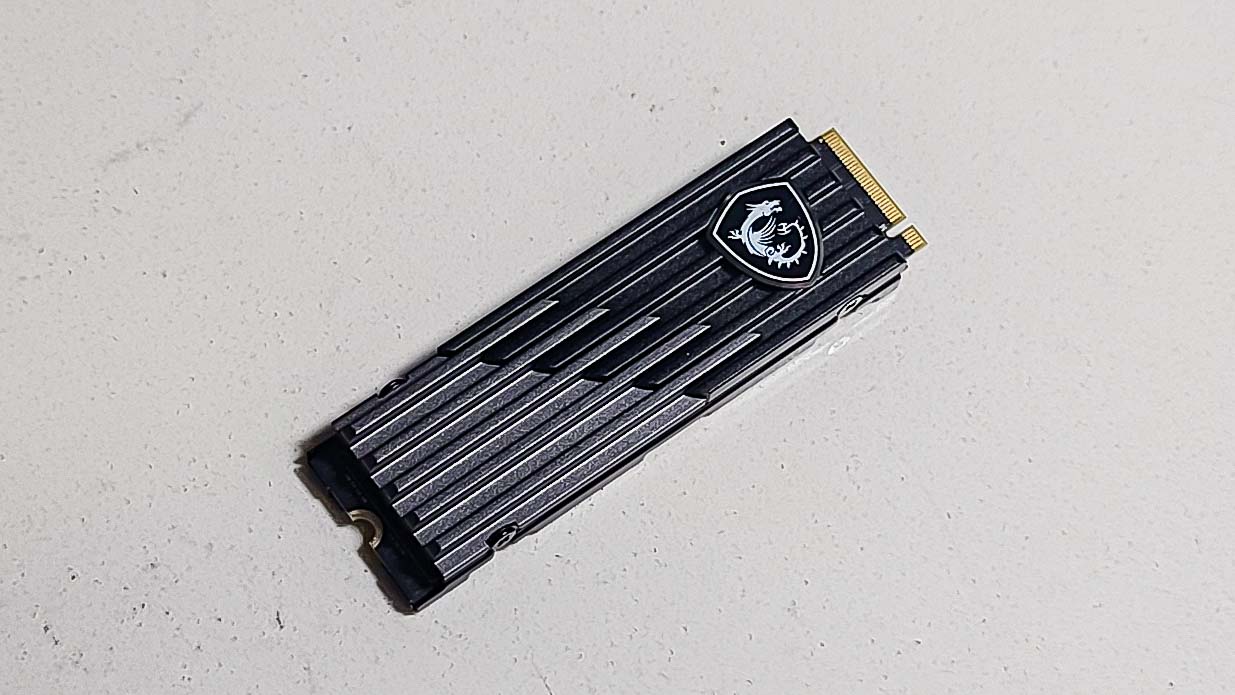
It’s a shame that you’ll never see the MSI Spatium M480 Play when it’s inside your PS5, because it’s one of the better-looking drives we evaluated, with a dynamic, two-tone heatsink crowned with MSI’s dragon-shield logo. Although it had one of the lower PS5-rated read speeds (5,583MBps, versus MSI’s claim of 7,000Mbps), we experienced no significant performance problems with the drive. It was even the definitive winner of our Elden Ring load time test, needing only 19 seconds — two seconds faster than the nearest competitor. Capacities for this drive range from 500GB to 4TB.
Samsung 980 Pro (2TB)
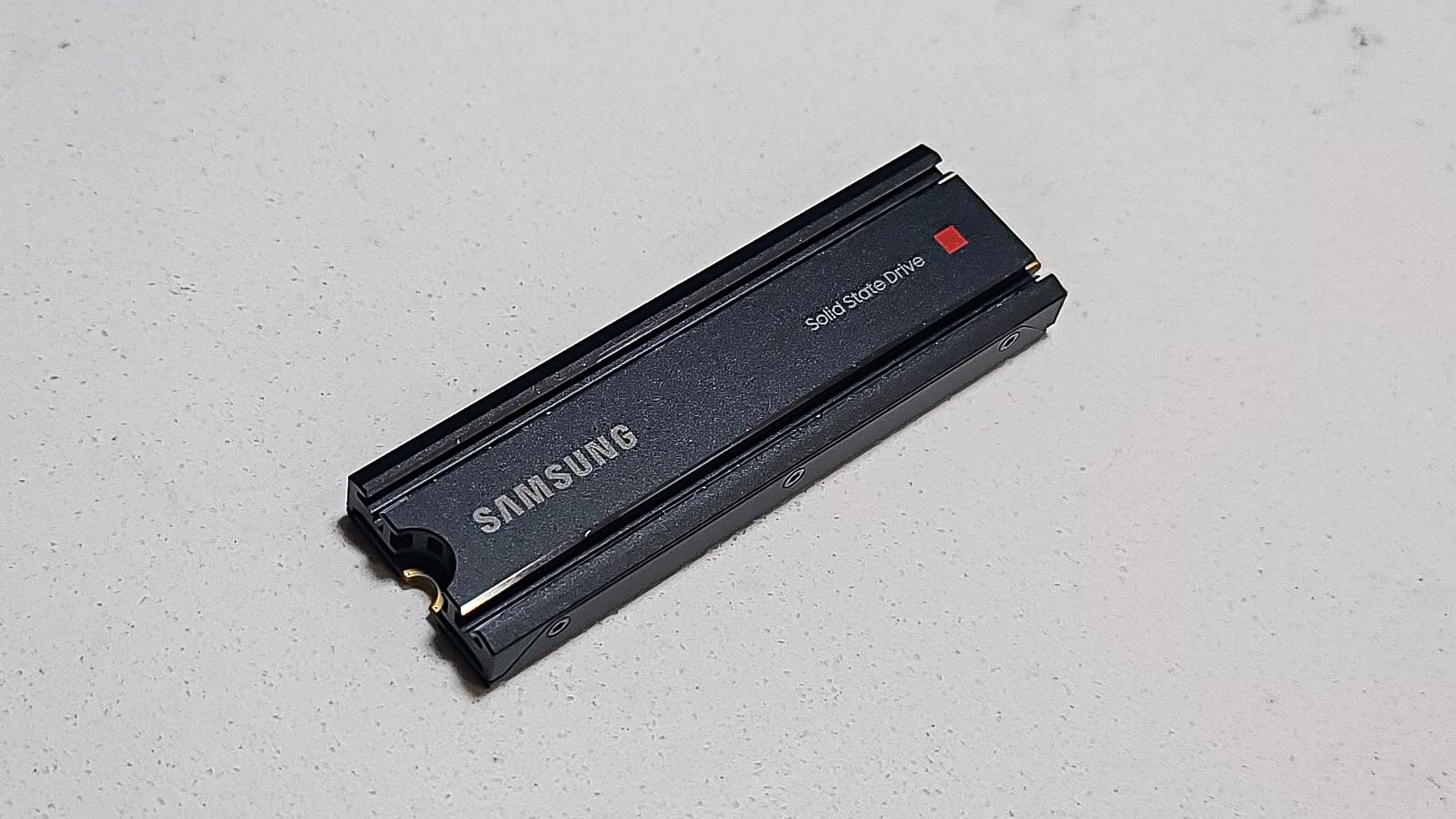
The Samsung 980 Pro didn’t win any of our speed tests (and our PS5 rated its read speed at 5,669MBps — well below Samsung’s advertised 7,000MBps), but it ran neck-and-neck with most of the other drives in our lineup, turning out fine performance nonetheless. It was, however, one of the most expensive SSDs we saw, with a list price of $299.99 (that drops down to about $249.99 on the street). If necessary, you can save some money by getting a lower-capacity model; this was the only drive we looked at with a 250GB minimum model (the maximum is 2TB). There are two different versions available, one with a heatsink and a less expensive one without. For console use, make sure you get the pricier one.
WD_Black SN850 (2TB)
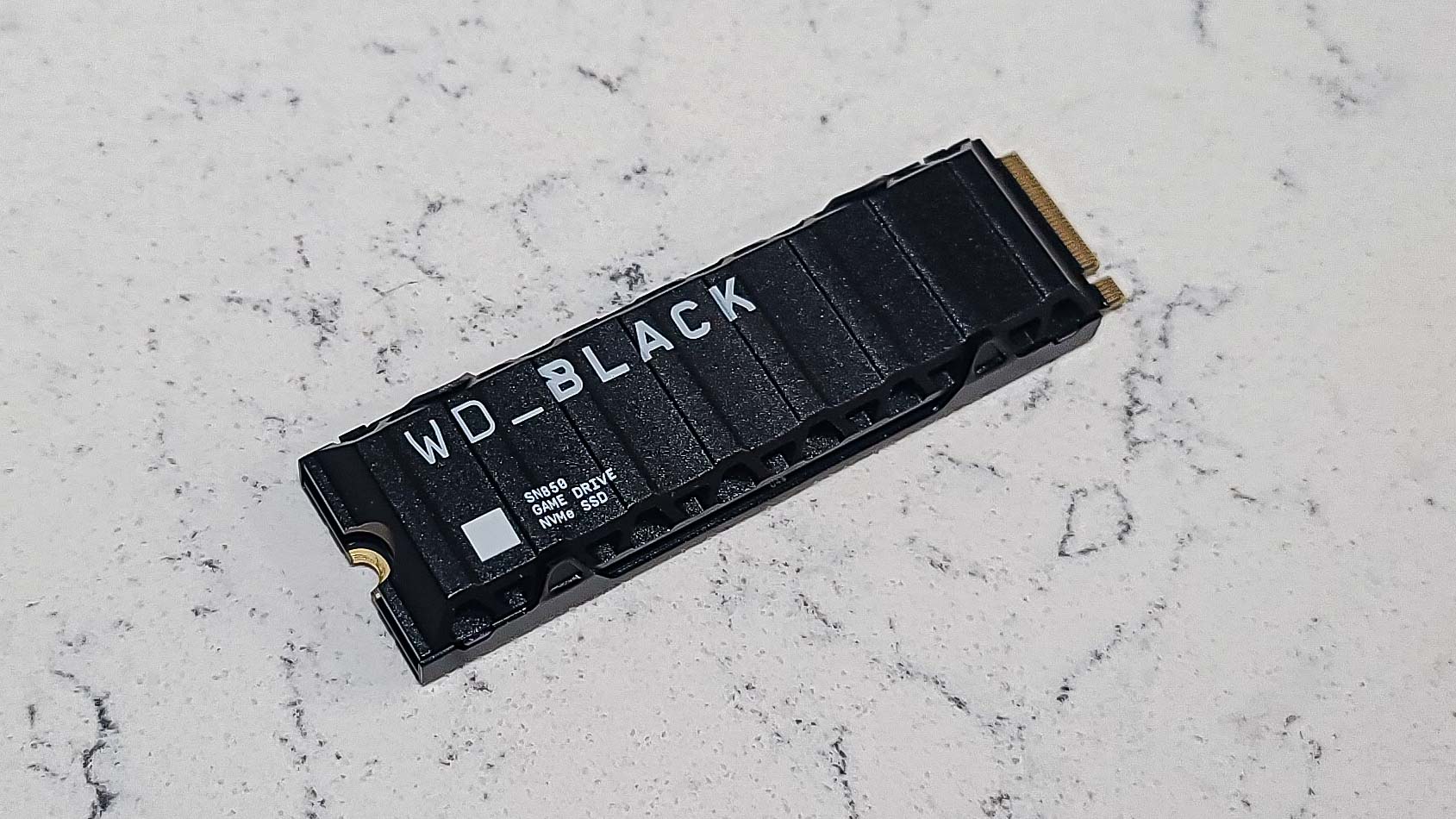
With an observed read speed of 6,549MBps on our PS5 — not too far below WD’s stated max of 7,000MBps — the WD_Black SN850 offers plenty of performance power. It looks the part, too, with its jet-black, industrial design that extends to the top of its heatsink (though a version is available without one, so check that you’re getting the right model). However, the WD_Black SN850 edged toward the middle of the pack in our performance tests, even if, like the other drives here, it wasn't ever slow. The 2TB model we tested (though there are also 500GB, 1TB, and 4TB capacities) can be expensive, even several years after launch it still costs around $180 with seasonal sales occasionally dropping it closer to $150. Of course, less than $200 is a lot easier to swallow than its original $349 list price but it's still not cheap.
XPG Gammix S70 Blade (2TB)
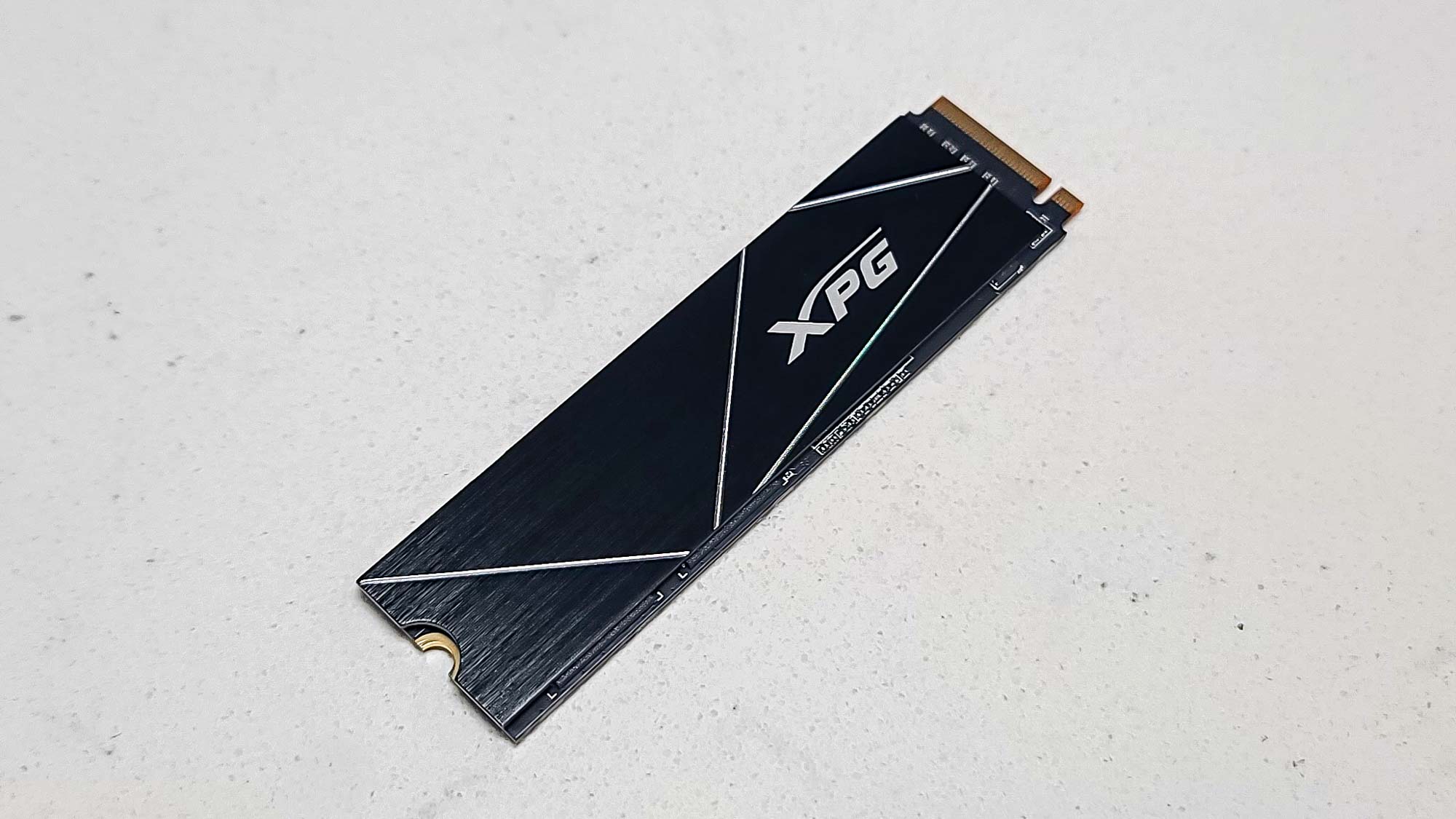
We didn’t test any bad drives this time around, but the XPG Gammix S70 Blade comes with a couple of key caveats. It took noticeably longer for the PS5 to format than any of the other drives; you’ll need to affix the heat dispersal strip to the drive yourself (although said strip is included); and, with a list price of about $249.99, it’s on the pricey side. But it was a member of the 6,000 club in terms of its detected read speed (6,188MBps, versus a claimed 7,400MBps), and it was just fine at handling every gaming task we threw at it. If you don’t want 2TB, the Gammix S70 also comes in 512GB, 1TB, and 4TB capacities.
| Row 0 - Cell 0 | List Price | Street Price | Reported Read Speed (MBps) |
Corsair MP600 Pro LPX (2TB) | $239.99 | $224.99 | 5561.112 |
Crucial P5 Plus SSD (2TB) | $249.99 | $196.20 | 5639.512 |
Gigabyte Aorus Gen4 7000s SSD (1TB) | N/A | $234.19 | 6537.61 |
Kingston Fury Renegade (2TB) | $424.99 | $239.99 | 6492.697 |
MSI Spatium M480 Play (2TB) | N/A | $219.99 | 5583.47 |
Samsung 980 Pro (2TB) | $299.99 | $249.99 | 5668.588 |
Teamgroup T-Force Cardea A440 Pro Special Series (2TB) | N/A | $219.99 | 5862.352 |
WD_Black SN850 (2TB) | $349.99 | $239.99 | 6548.967 |
XPG Gammix S70 Blade (2TB) | N/A | $249.99 | 6187.615 |
How we test the best PS5 internal SSDs
Like most internal storage, PS5 SSDs have one purpose in life: to house your data. You put your games on, you play them and you (maybe) take them off when you’re ready to play something else for a while.
We test all of these tasks. We time how long it takes to move a game from the PS5’s integrated storage to the SSD, how long it takes to load the game and get to its start screen, and how long it takes to move the game back to the PS5’s storage. (And although this information won’t be useful in most cases, we also report what the PS5 detects as the drive’s read speed when it’s configured upon first use.)
We used three games for this task. Mass Effect: Andromeda is a PS4 title (46.73GB in size) that we also used when testing PS5 external hard drives. (Spoiler: The internal SSDs are faster across the board.) Assassin’s Creed Valhalla is a huge (71.22GB) big-budget game from late 2020. And the 45.14GB Elden Ring is the undisputed smash hit released earlier this year.
Copy Time (Download/Upload)
| Row 0 - Cell 0 | Assassin's Creed Valhalla | Mass Effect: Andromeda | Elden Ring |
Corsair MP600 Pro LPX (2TB) | 0:58/5:12 | 0:34/3:23 | 0:37/3:21 |
Crucial P5 Plus SSD (2TB) | 0:59/5:12 | 0:34/3:22 | 0:38/3:20 |
Gigabyte Aorus Gen4 7000s SSD (1TB) | 0:58/5:13 | 0:34/3:23 | 0:38/3:20 |
Kingston Fury Renegade (2TB) | 0:56/5:13 | 0:33/3:23 | 0:37/3:20 |
MSI Spatium M480 Play (2TB) | 0:58/5:13 | 0:34/3:23 | 0:38/3:20 |
Samsung 980 Pro (2TB) | 0:58/5:13 | 0:33/3:22 | 0:38/3:20 |
Teamgroup T-Force Cardea A440 Pro Special Series (2TB) | 0:57/5:13 | 0:33/3:23 | 0:38/3:19 |
WD_Black SN850 (2TB) | 0:58/5:12 | 0:34/3:22 | 0:38/3:20 |
XPG Gammix S70 Blade (2TB) | 0:57/5:13 | 0:34/3:22 | 0:38/3:20 |
| Row 0 - Cell 0 | Assassin's Creed Valhalla Load Time | Mass Effect: Andromeda Load Time | Elden Ring Load Time |
Corsair MP600 Pro LPX (2TB) | 0:50 | 0:24 | 0:22 |
Crucial P5 Plus SSD (2TB) | 0:50 | 0:24 | 0:21 |
Gigabyte Aorus Gen4 7000s SSD (1TB) | 0:50 | 0:26 | 0:22 |
Kingston Fury Renegade (2TB) | 0:51 | 0:25 | 0:23 |
MSI Spatium M480 Play (2TB) | 0:52 | 0:26 | 0:19 |
Samsung 980 Pro (2TB) | 0:51 | 0:26 | 0:22 |
Teamgroup T-Force Cardea A440 Pro Special Series (2TB) | 0:53 | 0:23 | 0:21 |
WD_Black SN850 (2TB) | 0:53 | 0:24 | 0:21 |
XPG Gammix S70 Blade (2TB) | 0:52 | 0:25 | 0:21 |
Sign up to get the BEST of Tom's Guide direct to your inbox.
Get instant access to breaking news, the hottest reviews, great deals and helpful tips.
Matthew Murray is the head of testing for Future, coordinating and conducting product testing at Tom’s Guide and other Future publications. He has previously covered technology and performance arts for multiple publications, edited numerous books, and worked as a theatre critic for more than 16 years.

